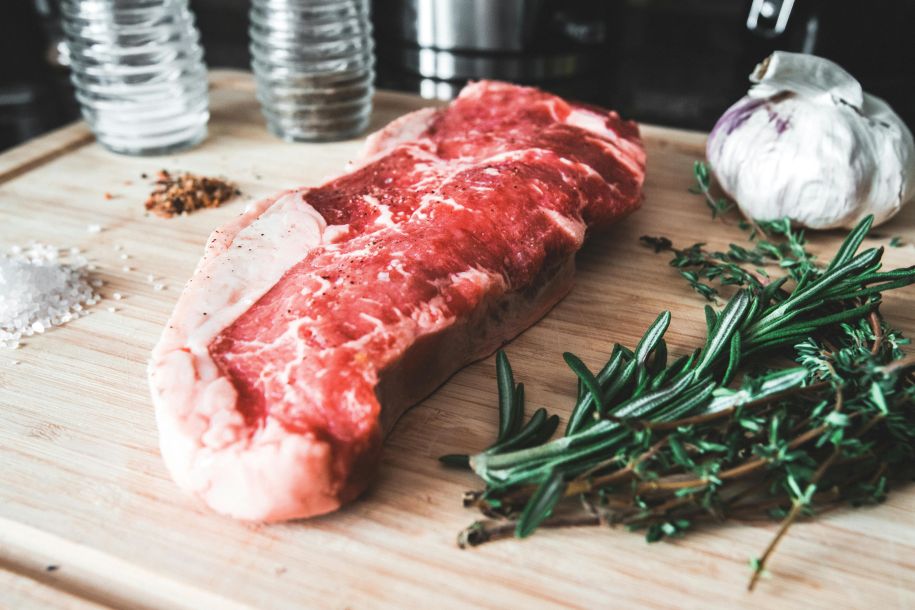
When my son was diagnosed with Crohn’s I immediately began researching every aspect of nutrition that I could find. I knew that the food he put in his body was going to be even more crucial than ever. In a short period of time, I realized that everyone had an opinion on this topic.
Some believe that it doesn’t matter the type of food that is consumed, which I find to be outrageous. They say with Crohn’s that the immune system will attack the intestines regardless of what you eat. But if your intestines are already compromised, why would anyone want to intentionally eat inflammatory foods?
The pediatric GI recommended the Mediterranean and SCD (Specific Carbohydrate Diet) and both will be discussed later in detail. The functional medicine doctor suggested Carnivore and Keto. These all have one thing in common that we’ll talk about in the conclusion.
Anti-inflammatory nutrition plans are often prescribed for many digestive disorders, but autoimmune conditions in general. I know people with MS, lupus, rheumatoid arthritis, and several others that were recommended some of the diets listed below. Here are just some of the nutrition plans for IBD that have been mentioned:
Mediterranean Diet – The Mediterranean diet focuses on plants and healthy fats. Foods included on this nutrition plan include fruits, vegetables, nuts, seeds, beans, legumes, whole grains, fish, seafood, healthy fats, and omega oils. These foods are also considered to be heart-healthy.
SCD – The Specific Carbohydrate Diet is grain-free and advises to consume minimal sugar and lactose. This protocol focuses on meat, fish, poultry, eggs, fruits, vegetables, most nuts, certain oils, teas, coffee, and honey. There’s a popular book called “Breaking the Vicious Cycle” by Elaine Gotschall that goes into great detail about this nutrition plan. She seemed to have been way ahead of her time with the knowledge about inflammatory foods.
Carnivore – Carnivore is basically meat, fish, eggs, honey, ghee, olives, avocado, raw dairy and some types of fruit. The book “Carnivore Code,” by Paul Saladino shows the various tiers of the carnivore diet. The book is quite scientific and although this diet may be challenging for some to follow, people have been happy with the results and how they feel.
Keto – This diet consists of meat, fish, eggs, dairy, low carb vegetables, oils, nuts, and seeds. This plan has individuals phase out sweets, potatoes, rice, pasta, bread, corn, peas, beans, lentils, fruit, and milk. When your body goes into ketosis, it reduces inflammation which is important when it comes to autoimmune disorders, especially IBD.
Enteral Nutrition – (EN) provides critical micronutrients to individuals who cannot absorb the essential nourishment. This type of nutrition is administered via a feeding tube for those with conditions such as Crohn’s, celiac, or ulcerative colitis where it’s difficult to absorb nutrients. It’s often used when patients have lost weight and are having problems gaining it back. Other health conditions warrant this type of feeding strategy including dysphagia (trouble swallowing,) stroke, and neurological illnesses.
Low Fodmap – FODMAP stands for “fermentable, oligosaccharides, disaccharides, monosaccharides, and polyols. This diet limits certain sugars that are known to cause intestinal distress. It mainly focuses on eggs, meat, certain cheeses, rice, quinoa, oats, eggplant, potatoes, tomatoes, cucumbers, zucchini, grapes, oranges, strawberries, blueberries, and pineapples. This meal plan is popular for SIBO and IBS.
There are other diets to consider, but the information was inconsistent across multiple sources. This is pretty common when it comes to health topics of this magnitude. Researching food sources is so complex which is why the average American doesn’t know what to eat anymore!
You don’t have to follow a particular diet per se, but you can create your own anti-inflammatory nutrition plan based on the foods you like and what works for you. These foods are known to reduce chronic inflammation, enhance digestive health, improve skin health, and boost immune function. Click here for a list of foods. These lists vary depending on the reference you are reviewing.
As you navigate your way through the grocery store and improve your planning, keep a journal of your meals and take notes regarding your general well-being each day. This is a great way to notice patterns so you can fine-tune your food choices if something is bothering your digestive tract. How you feel on a daily basis will tell you a lot about what you’re putting into your body and whether or not it agrees with you.
In my house, the meals revolve around meat, eggs, fish, nuts, seeds, fruit, vegetables, rice, potatoes, grass-fed butter, and minimally processed foods. For example, raw, unbaked, unsalted cashews have more nutrients than baked and salted cashews. Coconut oil popcorn is much healthier than ultra-processed Doritos. Making these changes will improve your nutrition and overall health.
It’s very difficult to figure out where to start when it comes to nutrition. Today eggs are bad, but tomorrow they’re good. If red meat is so terrible, then why is it recommended in the diets listed above by various doctors for autoimmune illnesses? I find this to be a fascinating tidbit of information. Our culture tends to be fickle and talk out of both sides of its mouth. We often flip flop when it’s convenient, depending on the conversation.
I would recommend keeping meals simple so you’re more likely to sustain a healthier eating plan. Your choices will become a natural, healthy habit. Focus on whole, unprocessed foods rich in antioxidants and healthy fats. Avoid added sugars and heavily processed foods. All of the nutrition plans listed above are low carb. There’s been so much negativity around carbohydrates in general. Many say that eating wheat products is fine, but yet when it comes to IBD, most of the plans eliminate it. Both of my son’s doctors recommended diets that are low in carbohydrates.
In conclusion, anti-inflammatory diets can play a crucial role in managing IBD by alleviating symptoms and promoting gut health. An emphasis on nutrient-dense foods is key. It is a fact that not all diets are created equally and affect individuals differently. Tailoring a diet to a person’s specific needs is important, since many must avoid food intolerances. Consulting your doctor or a dietitian is essential for creating a sustainable and nutritionally balanced plan that aligns with medical treatments and personal preferences. Having a positive mindset and the right support group will help enhance your quality of life. Best of luck to everyone dealing with the challenges of IBD. Comment below on what diets or foods in particular have worked for you.
Sign up for my free monthly newsletter at the bottom of my blog or reach out anytime to Kim at [email protected]
Photo by: Javon Swaby

